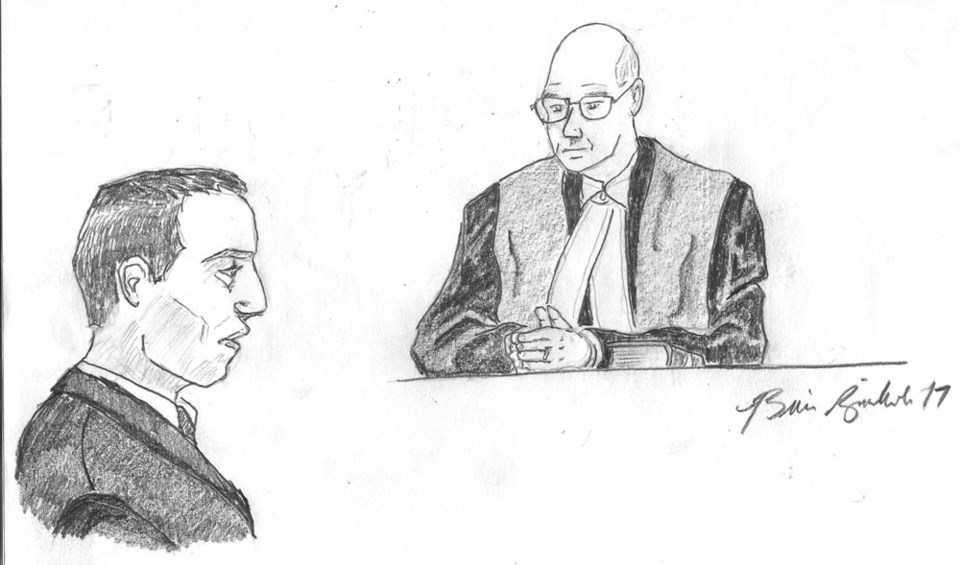Your buddy gives you a blotter paper with a small amount of LSD for your 23rd birthday. You think nothing of it, put it way in your pile of things where you live, somewhat haphazardly communally, as a instructor at a ski resort in Colorado. Two years later, driving through Canada to get to your new job at a ski resort at Juneau, Alaska, Canada Border Services Agency officers at North Portal find your small tin, with the 20 blots of LSD on paper. When they confront you, you immediately fess up that it’s LSD.
That’s the story, according to American Benjamin Bialek, as told by both is lawyer, Matt Schmelling, and himself, in throwing himself on the mercy of the court and asking for a conditional discharge on Oct. 16 in Estevan provincial court.
Federal Crown prosecutor Eric Neufeld said the incident took place on May 8, 2017. Border agents, and then police, seized 20 squares of Lysergic acid diethylamide (LSD), worth $5 each, for a total value of $100. Noting that Neufeld got an implicit break already by not being charged with importing the drug, he felt that Bialek should get a fine in the range of $200 for the possession charge he was facing.
Schmelling said Bialek was 25 years old. He grew up in Washington, D.C. in a conservative household, and he has not told his parents about this incident. In 2014 he completed a bachelor of science degree in microbiology and bacteriology from the University of Wisconsin-Madison. He had worked with the Wisconsin State Laboratory of Hygiene from 2012 to 2016, according to his LinkedIn page.
The blotter paper in question was the size of a credit card, in a tin. While Bialek understood it to be LSD, and never denied it, he also never used any of it, according to his lawyer. Additionally, testing done at the border was inclusive if it was, indeed LSD, or if the drug had dissipated.
“He completely forgot about it, and didn’t know it was there,” Schmelling said.
Bialek had to pay a $770 fine to get his vehicle released on that day. He went on to work in Juneau. To make his court date in Estevan, he flew to Calgary and rented a car to drive to Estevan. The defence lawyer added that Bialek had legal expenses, as well.
Those legal fees paid for Schmelling presenting a prodigious amount of case law, and included a story from the Estevan Mercury on a case that hadn’t been reported otherwise. The numerous cases focused primarily on people coming across the border and getting off relatively lightly in similar cases, several of which referred to possession of firearms.
Neufeld wasn’t terribly interested in the case law, re-asserting to Judge Lane Wiegers that Bialek is already getting off easy, without an importation charge which would likely net jail time.
Schmelling suggested Bialek get a nine-month probation order as part of a conditional sentence, and offered that he could perhaps make a donation to a charity here in Canada, since making one to the additions organization he planned on volunteering with in Juneau might be problematic. It was also problematic in reporting in to probation. Schmelling offered that Bialek could either phone in, from Juneau, or simply have a non-reporting clause.
Bialek told Judge Wiegers he knew immediately what border agents found, and took full responsibility. He added, “A lot of living in southeast Alaska involved travel to Canada,” implying a criminal record would make that very difficult.
“I wanted to stand in front of you, your honour, and take responsibility.”
After reviewing the case law over lunch, Judge Wiegers gave Bialek a conditional nine-month discharge.



